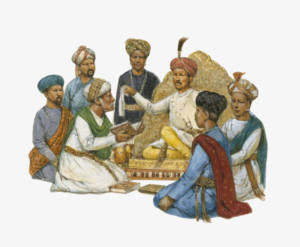An Ancient Religion Struggles for Survival in Canada

The ancient religion of Zoroastrianism remains poorly understood by outsiders while continuing its fight for survival and relevance in the modern era.
Imagine a pre-Christian religion that is thousands of years old, originated within an ancient empire, and serves as the source of some important religious concepts that we take for granted. You might immediately guess that this description fits Hinduism or Buddhism. Yet both of those faiths count several hundred million believers all over the globe, while followers of the ancient religion just described number less than 200,000 worldwide. With less than 10,000 adherents in Canada today, Zoroastrianism remains poorly understood by outsiders while continuing its fight for survival and relevance in the modern era.
A Quick Crash Course on Zoroastrianism
This distinctive ancient religion originated with Zarathustra, a Persian religious thinker who was thought to have lived sometime during or before the sixth century B.C.E. Throughout his writings, he laid out a cosmology with several important elements:
- The existence of a benevolent creator deity, Ahura Mazdā
- A dualistic world with both good and evil
- The human capability of free will to choose a side
- Good’s eventual triumph over evil
These philosophies were expanded through later writings to include other concepts such as the existence of a destructive spirit known as Ahriman, a final judgment of all humanity, and an eternal afterlife. Some ideas influenced Judaism during the Babylonian exile, while others made their way into Islamic and Christian theologies.
Why Are There So Few Zoroastrians Left?
If asked to name a famous Zoroastrian, you’d probably struggle to find one. Freddie Mercury, the late front man for the British rock band Queen, was one high-profile believer familiar to many in the West. You’d likely have an easier time coming up with a name if you’re an Indian or Iranian Canadian, perhaps naming Bollywood actor and producer John Abraham or the late model and actress Persis Khambatta. While those two nations currently have the largest populations, with 69,000 and 25,000 respectively, estimates on the number of Zoroastrians in Canada vary. Statistics Canada’s 2011 National Household Survey counted around 6,100 while a 2016 CBC article cited 10,000 followers currently in our nation.
Either way, those are still relatively small numbers, but history may reveal why this is the case. As the Encyclopedia Britannica discloses, Zoroastrianism was a major ancient religion throughout Persia’s history until the Sasanian Empire fell. Between 629 and 640 C.E., the kingdom suffered several invasions from Islamic forces, including armies commanded by supporters of Muhammed. During the early years of Muslim rule in Iran, many Zoroastrians converted either by choice or force. Some groups opted to avoid persecution instead, leaving to settle in India during the 10th century C.E.
Canadian Zoroastrians Grapple With Faith and Inclusion
Canadian Zoroastrian communities discover that finding clergy and building temples remain salient concerns, as these elements are needed to serve their faithful as well as pass on and define traditions. Also, the Encyclopedia Iranica explains that there is no global hierarchy present, so local clerics wield supreme authority in each region when it comes to matters of doctrine. That includes the acceptance of converts, and stances on the issue can range from a liberal welcome to a refusal to even recognize the children of interfaith marriages as Zoroastrian. With traditionalists insisting that only those born into the religion can be members, growth proves to be an ongoing challenge.
Several historical and modern developments have contributed to the small numbers of Zoroastrians all over the globe. Thanks to conquest and persecution along with heated debates about accepting converts, some believe that this ancient religion’s future is in jeopardy. Although its legacy can be seen in vital ideas that were transformed into theological points within the three Abrahamic faiths, its Canadian followers continue to form strong communities while attempting to define key issues of their faith.

